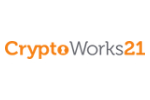IQC hosts first “Quantum Programming and Circuits Workshop”

From June 8 - June 11 2015, the Institute for Quantum Computing (IQC) hosted the “Quantum Programming and Circuits Workshop”, the first open workshop bringing together researchers from quantum computing and classical programming. It was co-organized by Martin Roetteler at Microsoft Research, Peter Selinger at Dalhousie University and Michele Mosca from IQC, and co-sponsored by IQC, Microsoft Research and CryptoWorks21.
The event brought together leaders from industry and academia, including:
- Dave Wecker from Microsoft who showcased “LIQUi|>” and other software tools being developed at MSR for the simulation and compilation of quantum algorithms;
- Peter Sarnak from Princeton University and the Institute for Advanced Studies who spoke about some of the deep mathematical foundations of quantum gates synthesis; and
- Margaret Martonosi from Princeton University who spoke about language, compiler and optimization issues in quantum computing.
Experimentalists are getting closer to realizing the building blocks of a large-scale fault-tolerant quantum computer. Programming these devices and translating these programs into instructions for the physical devices will be a necessary and important part of taking advantage of the computational power of quantum computers. Performing this task well will have an important impact in terms of what can be achieved with the first generation of quantum computers.
Topics covered by the workshop included the verification of quantum circuits, the synthesis and optimization of quantum circuits, automated methods, programming languages, simulations of quantum circuits and other related topics included in a longer report by Vlad Gheorghiu.
The workshop also featured a public lecture on “Quantum Computing: Transforming the Digital Age” by Dr. Krysta Svore, head of Microsoft Research’s Quantum Architectures and Computation group.
The workshop brought together over 65 researchers from mathematics, physics, computing and engineering from around the world, and helped nurture the growing community of researchers in academia and industry who will build the software tools to run the quantum computers that are emerging from experimental quantum computing laboratories worldwide.
